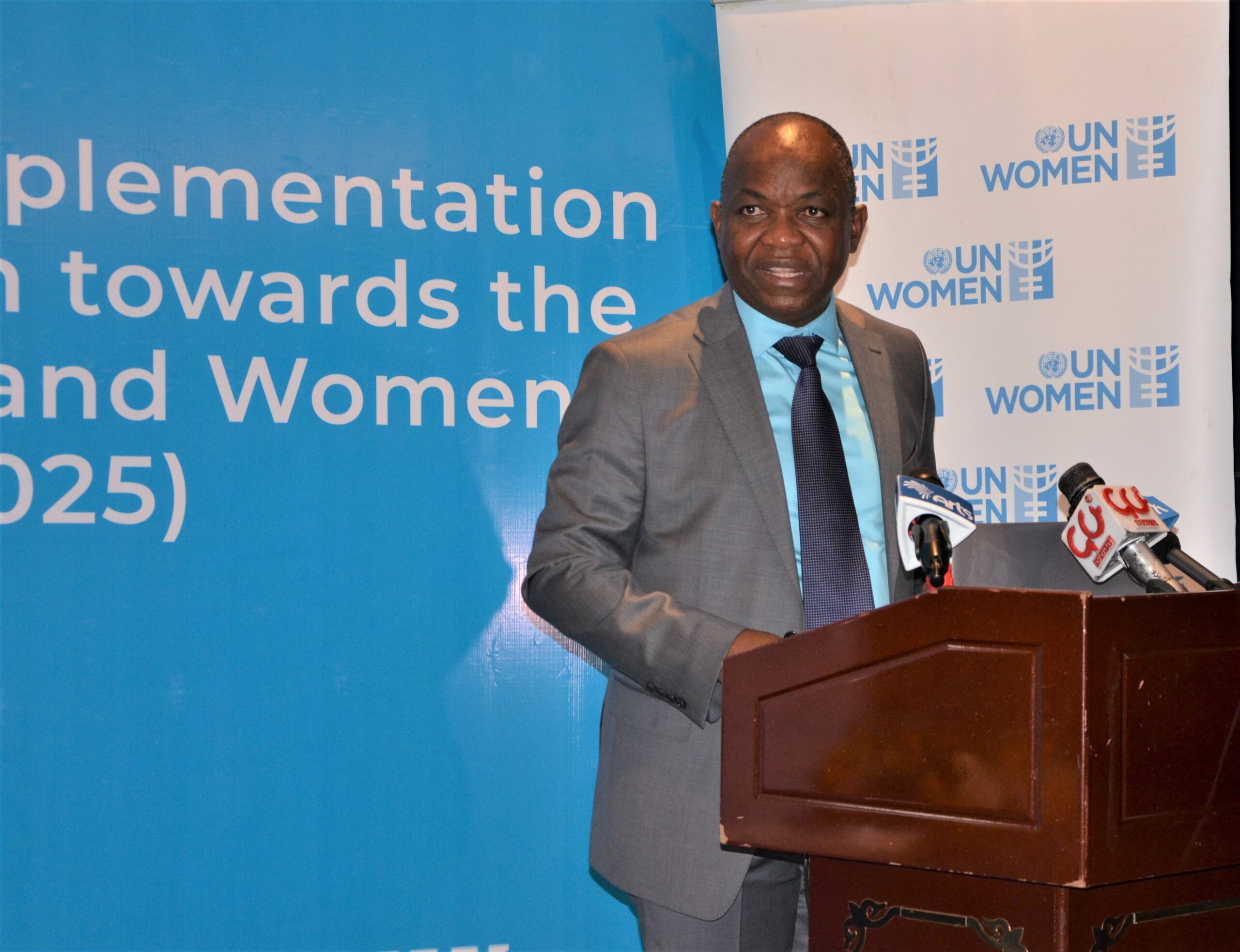Maxime Houinato, UN Women‘s Regional Director for Central and West Africa, is set to meet with private sector leaders in Nigeria to advocate for enhanced investment in gender equality and women’s empowerment. The meeting is scheduled to hold in Lagos on Tuesday, 19th September, 2023.
This visit, part of UN Women’s efforts to promote partnerships for gender equality, will bring together stakeholders to explore avenues for increased private sector engagement in advancing the rights and opportunities of women and girls in Nigeria.
Read also: Sama plans to train 2000 youths, women with AI skills
Round Table Discussions on Gender Equality and Women’s Empowerment
Houinato’s visit will kick off with a Round Table meeting with the Private Sector, including the High-Level steering committee of the GBV (Gender-Based Violence) Fund and potential donors. The primary objective is to understand the private sector’s role in development initiatives, specifically in gender equality and women’s empowerment. The discussions will delve into potential areas of partnership and emphasise the need for expanded private sector investment in the advancement of women and girls in Nigeria. Additionally, conversations will revolve around UN Women’s new phase of work dedicated to furthering gender equality and women’s empowerment in Nigeria.
Following this session, a second Round Table with Private Sector CEOs will commence, focusing on the board chairpersons and CEOs of private companies and organisations. This meeting aims to advocate for the development and promotion of gender policies that enhance gender mainstreaming within the private sector and embed gender equality within Nigerian private companies.
Central to the dialogue will be the Women’s Economic Principles (WEPs), designed to mainstream gender equality in corporate organisations while encouraging increased private sector investment in women’s empowerment. Similar to the previous discussion, the agenda will also feature UN Women’s renewed commitment to advancing gender equality and women’s empowerment in Nigeria.
Empowering Women Through Private Sector Engagement
The private sector is a critical stakeholder in community development, contributing significantly to national income and employment. It plays a pivotal role in technological advancements, governance, research development, workforce capacity building, and job creation. As such, it is a vital partner in advocating for gender equality and women’s empowerment.
Maxime Houinato’s visit to Nigeria seeks to gain deeper insights into the UN Women Country office’s programming and operational context, enabling enhanced political and technical support from the Regional Office. The objective is to foster a shared understanding of the social, political, economic, and cultural landscape in which the United Nations Country Team (UNCT) operates in Nigeria, including identifying challenges and gaps while supporting ongoing efforts related to gender equality and women’s empowerment.
Additionally, the Regional Director aims to appreciate the Nigerian government’s backing of UN Women’s initiatives and advocate for more substantial collaboration. Key focus areas include women’s participation in governance and politics, ending violence against women and girls, women’s economic empowerment, gender statistics, gender-responsive humanitarian action, and gender-responsive planning and budgeting.
African women are becoming financially independent through digital platforms
During his visit, Houinato will also advocate for increased funding for gender equality and women’s empowerment (GEWE). This includes implementing the UN Secretary-General’s recommendation to allocate 15% of funds to initiatives addressing gender disparities and promoting women’s empowerment. Furthermore, he will encourage Member States to fulfil funding pledges made during the Generational Equality Fora in Paris and Mexico.
In line with these objectives, Houinato will engage with the private sector to foster deeper partnerships and increase involvement in promoting gender equality and women’s empowerment in Nigeria. Innovative financing mechanisms, such as gender bonds and the private sector GBV Fund, will also be discussed to bolster these efforts.
Conversations around the maximisation of technology to achieve the desired rise in the empowerment of Nigerian women are also expected to be raised during the meeting.




